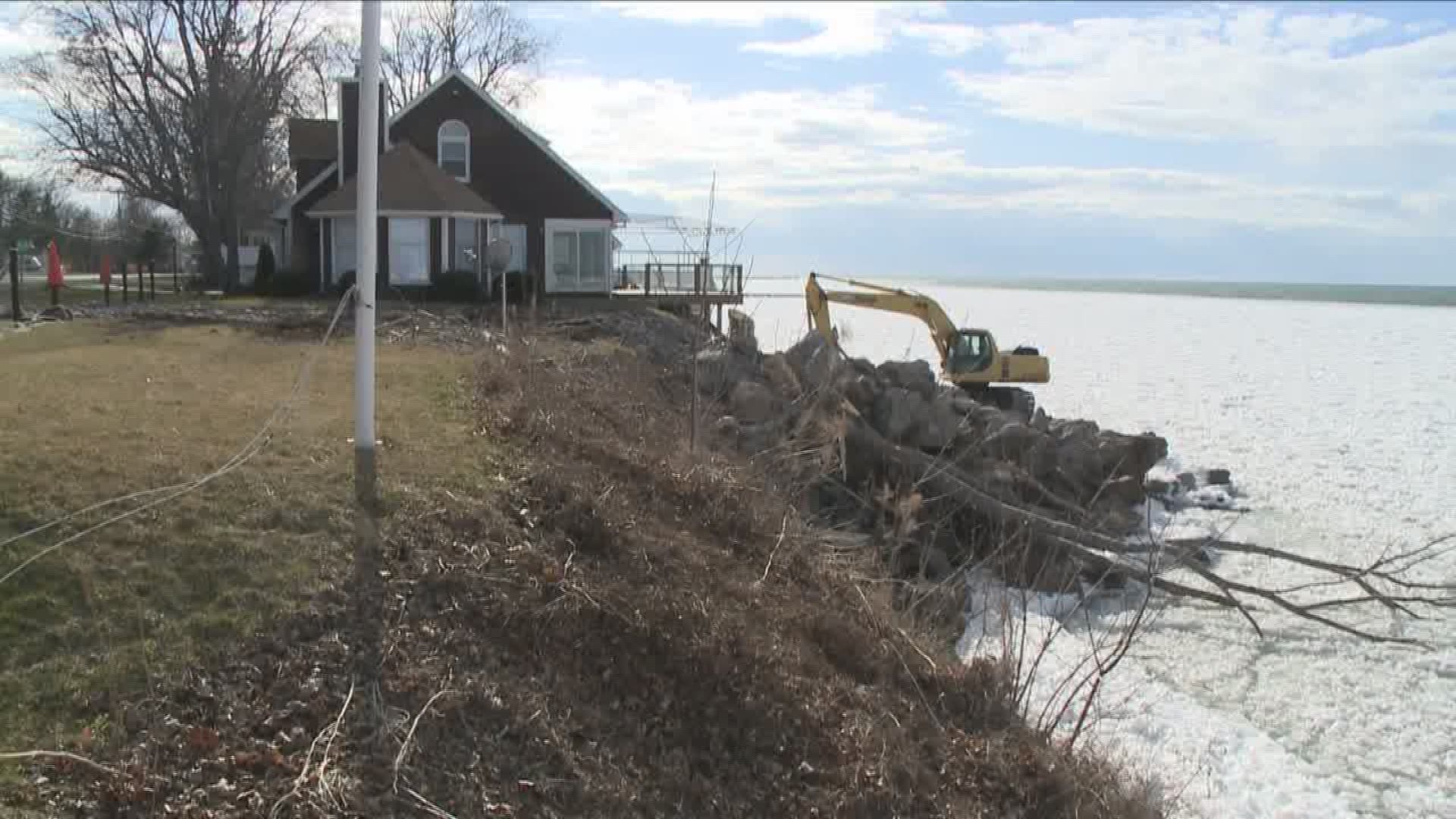WILSON, N.Y. – The recent passage of this year's state budget includes $40 million in financial relief for property owners and communities that saw damage in last spring's flooding along the Lake Ontario shoreline.
That's on top of $45 million in funding released by the state last year because there are still people waiting for that money to come through.
Senator Rob Ortt, whose district includes all of Niagara and Orleans counties, pushed for that additional funding because many property owners and municipalities are still on a priority-based waiting list for help.
Some good news for Lake Ontario residents is that water levels – although still a bit higher than normal – are lower now than they were this time last year, and the Army Corps of Engineers predicts they'll go back to average levels this season.
"Talking to constituents, it seems this year at this point, we seem like we're in a much better spot right now than we were last year at this time,” said Senator Ortt on Sunday.
But even so, many property owners are still reeling from the effects of flooding last year. Driving through Wilson on Sunday, one home that sits right on the water has a large construction presence that appears to be reinforcing the house and re-building the shoreline.
Niagara County Legislator David Godfrey said by phone this weekend there's a backlog for contractors and materials needed for repairs or homeowners looking to take preventative measures. He says the demand for contractors will likely last through May.
Meanwhile, Ortt remains critical of the International Joint Commission's 2014 plan to release less water from the St. Lawrence river dam, at the east end of Lake Ontario.
“There is a real long-term concern for property owners out there that they're going to see the value of their property literally erode into Lake Ontario,” Ortt said.
The IJC was staunch last year in not releasing too much water because the commission said it would exacerbate flooding east of Lake Ontario and in parts of Canada.
So far this year, however, the St. Lawrence River Board has released record high amounts of water from February through now.
Ortt says the region’s economy is at stake if flooding were to continue. Niagara and Orleans counties rely heavily on tourism.
"The lake and the season, from April until September-October...that is their economy, and any negative impact besides the physical impact...there is a larger impact that can be felt to those businesses, to those property owners,” Ortt said.

